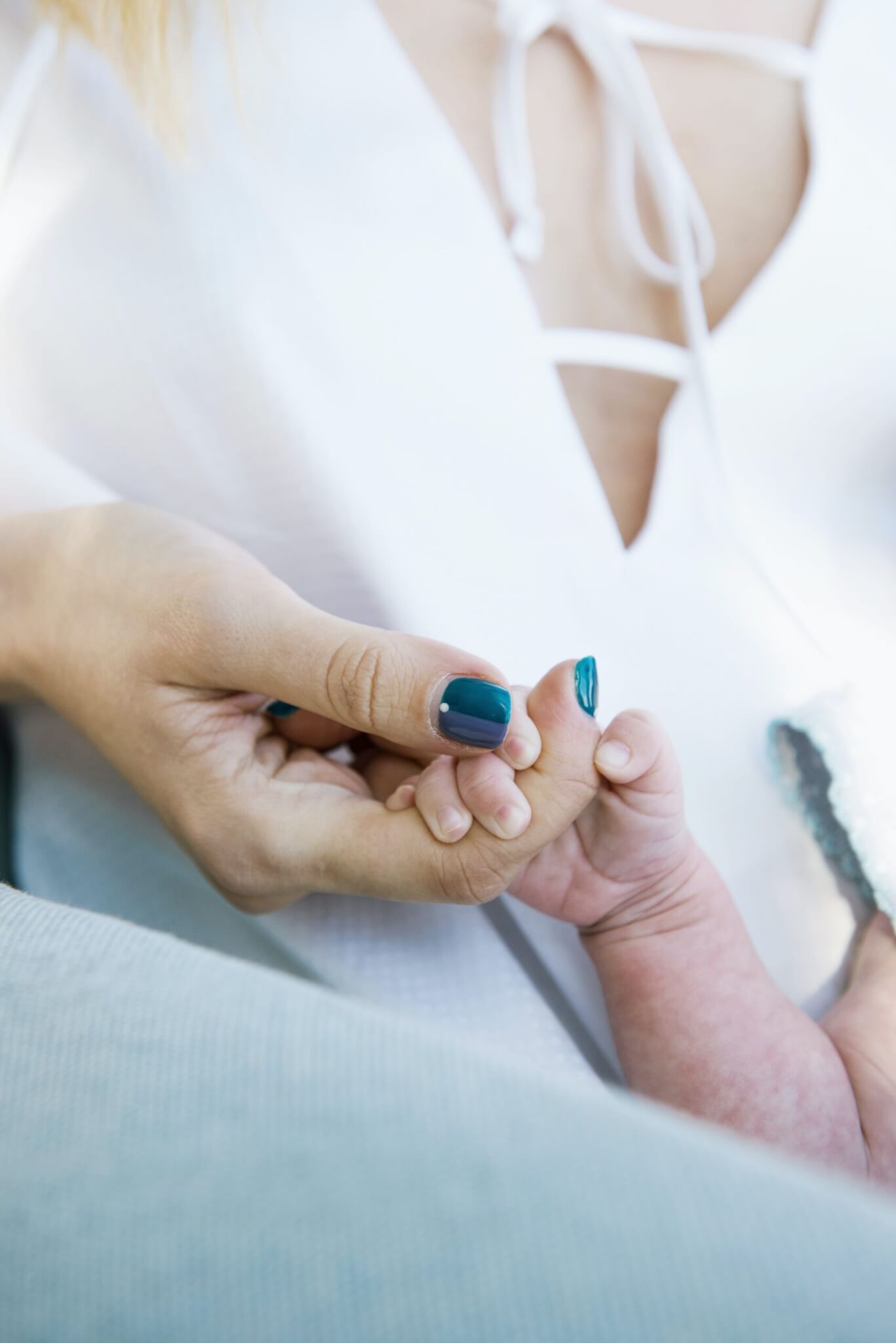
4 Things to Expect During Postpartum Recovery
It is a common myth that pregnancy is over after giving birth. The truth is that giving birth is the very beginning of a major transitional period for your body— the postpartum recovery period.
You may be wondering, “how long is the postpartum recovery period?” This transition (often recognized as the 4th trimester) typically takes place during the first 3 months after delivery.
After delivery, it isn’t uncommon to feel distant or confused by your body because it is still changing. Your health and wellness should continue to be a focus during your postpartum recovery period.
Read more to learn about what postpartum recovery can consist of during the postpartum period and for some postpartum recovery tips. Remember, postpartum recovery is different for everyone!
The Reproductive System in Postpartum Recovery
The organs that are part of your reproductive system include your uterus and genitals. These organs have undergone many changes over the past months and need time to recover after giving birth. Here are some things you may experience while you’re healing:
- As the uterus and genital organs heal, intermittent bleeding may occur for 6-8 weeks after giving birth. Bleeding that occurs past 8 weeks could be a friendly reminder from your body to respect its postpartum recovery process and reduce activity levels.
- The perineum, or area the area between the vaginal and anal openings, can be inflamed and sensitive anywhere between 1-3 weeks after vaginal/middle opening birth.
- The menstrual cycle usually resumes in about 2 months for people who do not breastfeed/chestfeed and within 8 months for those who do breastfeed/chestfeed. The hormone prolactin that allows for breast/chestfeeding suppresses ovulation, which is why these time frames differ.
- Your breast/chest size increases within the first week of postpartum recovery to prepare for breast/chestfeeding.
Talk to a health care professional if you experience:
- Excessive bleeding (this can be a sign of hemorrhage)
- A foul smell from your genital region or near an incision (this may indicate infection)
- Pain with breast/chestfeeding (this may indicate an infection, milk duct blockage, or skin/nipple irritation)
The Bladder & Bowels in Postpartum Recovery
Pelvic recovery after birth is another aspect of your body’s recovery after giving birth. You may experience some or all of the following:
- Difficulty fully emptying the bladder as well as not being able to hold your urine (called urinary incontinence) may begin during postpartum recovery. This should get better within 6 weeks to 3 months after vaginal birth.
- Fecal incontinence, or not being able to hold your stool, may happen if the area between your vagina and anus tore during vaginal birth. There is also a chance you may get hemorrhoids due to the pushing that was required to give birth. These symptoms may be challenging, but they are not uncommon.
- Constipation may persist early on after having a baby. This can usually be managed by walking and changing aspects of your diet.
- There may be a sensation of heaviness in the pelvis, a feeling like something is going to “fall out” of the pelvis, or difficulty fully emptying the bladder or bowels. These may be symptoms of pelvic organ prolapse. This is common (but not normal) and may be due to the prolonged weight of the baby on pelvic organs, the downward pushing required to give birth, or lack of support from the pelvic floor and abdominal muscles due to weakness after birth.
These symptoms and changes in your body may be challenging, but there are always people who can support you. If you are worried about any of these symptoms, talk to your health care team or find a pelvic floor physical therapist you trust.
Talk to a health care professional if you experience:
- Urinary or fecal incontinence after 3 months postpartum means you may have some pelvic floor dysfunction.
- Bothersome symptoms of pelvic organ prolapse, such as heaviness, may indicate there is more that could be done to support pelvic organs.
The Muscles & Joints in Postpartum Recovery
Your whole body has had to change to support the growth and weight of your baby. That means that the muscles of your stomach, back, and hips may be recovering too. You may experience some or all of the following:
- You may have back, pelvic girdle, muscle, and joint pain. It may get better on its own, but it should not last longer than 1 month after it starts.
- The diastasis rectus abdominis, or the spreading of the “6 pack” muscles, due to the connective tissue stretching that is located vertically between these ab muscles. This can get better anywhere between 1 day to 8 weeks postpartum.
- C-section incisions can take up to 6 weeks to heal. It is important that the healing process of the incision is respected by reducing overexertion during your daily activities and avoiding heavy lifting.
- Most women are “cleared” by their doctor to begin exercise at 6 weeks postpartum. But you can start exercising slowly as soon as it feels ok for you.
Talk to a health care professional if you experience:
- Shortness of breath or rapid breathing at rest. These may be symptoms of a blood clot that may have traveled to your lungs.
- Muscle pain that lasts for longer than 1 month. This can be a sign of muscle imbalance or movement dysfunction.
- If your abdominal muscles have separated and continue to bother you 8 weeks after you gave birth, you may require treatment if it is reducing your quality of life.
- Pain over or around your C-section scar after 6 weeks, which can indicate poor healing or hypersensitivity.
- Pain or incontinence with exercise may mean you have a musculoskeletal issue and/or pelvic floor dysfunction. It may also be a sign that your body hasn’t fully healed enough to meet the demands of your current level of exercise. Talk to your health care provider about what kind of exercise program would be best for you as you begin to increase your activity level.
Sex in Postpartum Recovery
Many people wonder about having sex after childbirth and when it is okay to start again. The following information can help you decide when it is right for you. If you have questions about when to have sex after giving birth, talk to your doctor.
- The majority of women can resume vaginal intercourse within 18 months after having a vaginal birth.
- There may be reduced sexual desire after having a baby . This may be due to a number of things, such as hormone levels, fatigue, relationship dynamics, and mental health.
Talk to a health care professional if you experience:
- Pain with intercourse. Pain can occur because of scar tissue, vaginal dryness due to breastfeeding, or hormonal levels. It may also be due to not waiting until the pelvic floor muscles have recovered, infections, or depression and/or anxiety.
- Reduced sexual desire or function that impacts your quality of life.
Getting help during Postpartum Recovery
With doctor visits occurring less frequently postpartum and attention predominantly focused on the baby, some find it easier to ignore the changes that are occurring and push through this phase. It can feel like there is less support during postpartum recovery, which is why there are health professionals, like Pelvic Floor Physical Therapists, out there to guide people through.
If any of the above postpartum changes last for too long, are painful, or are simply bothersome, do not hesitate to reach out to a qualified health professional, such as a pelvic floor physical therapist.
Postpartum recovery does not have to be an isolating experience. It can be an empowering experience that supports connecting with the body and allowing it to heal!
More content you may like:
Recommended Products
Some of the links on this page may be affiliate links. Laura Meihofer’s LLC is a participant in the Amazon Associates Program and others, as an affiliate advertising program designed to provide a means for sites to earn advertising fees by linking to products Laura organically uses and trusts. If you purchase a product through an affiliate link, your cost will be the same, but Laura will automatically receive a small commission. Your support is greatly appreciated and helps her spread her message!
Special thanks to Dr. Ellen Meisner for contributing this blog to laurameihofer.com








Sorry, the comment form is closed at this time.